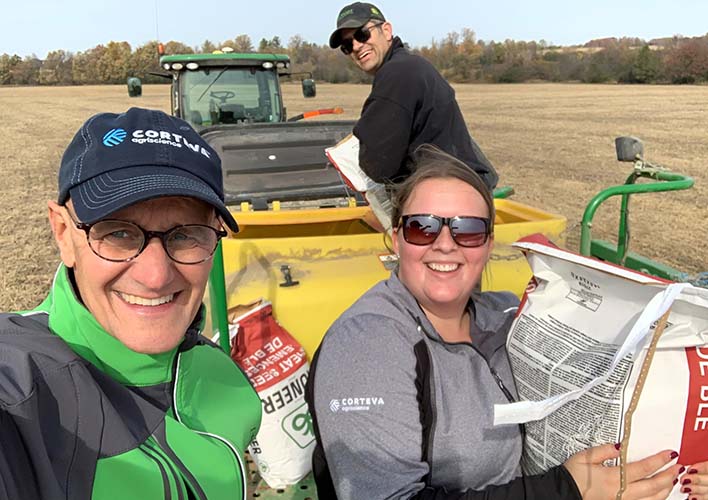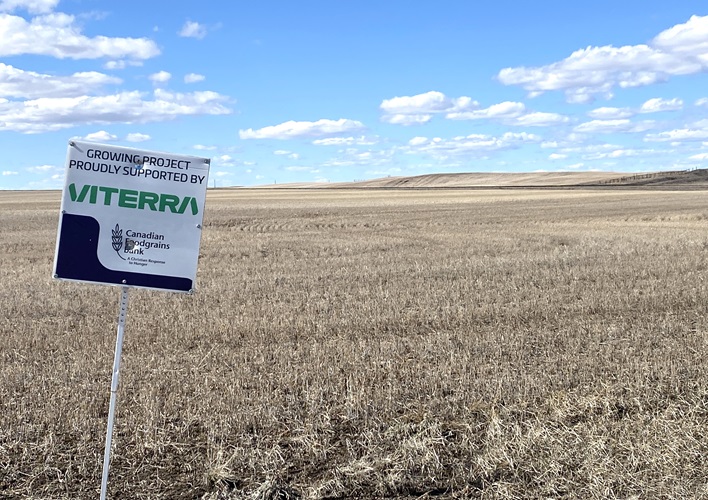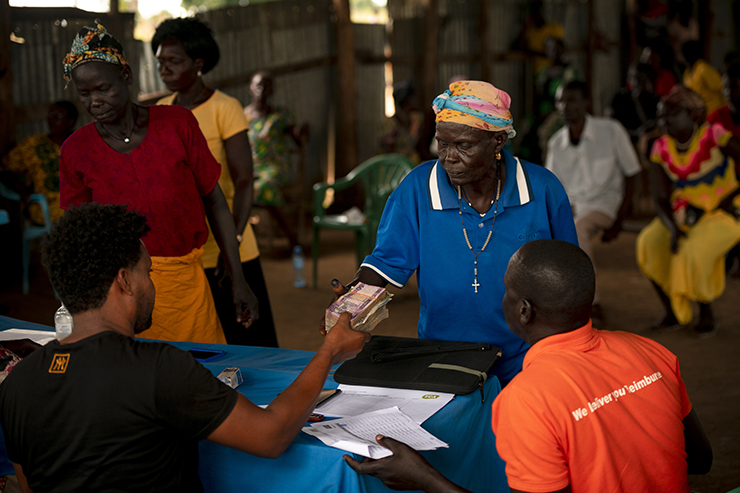Jeff Steiner and Laura Empringham (front), and Rich Burkholder (back) of the York Region growing project. This year for the first time Rouge National Urban Park provided the project with 42 acres in Markham, ON where they planted soybeans. (Photo: Submitted)
Poor weather doesn’t discourage growers from working to end hunger
It was a farming season that will long be remembered—but many might like to forget—in Canada’s heartland province.
This past year, there were more than 100 growing projects in Ontario, where farmers and farm supporters came together to plant, tend and harvest a crop to support the work of ending global hunger through Canadian Foodgrains Bank.
Weather varied across the province. At times, farmers within the same county experienced striking differences.
Major challenges to kick off the season
“It was snowy and unusually cold right until June, so we could only plant our 20 acres of soybeans a month later than usual,” says Bob Hutson, Chair of Thamesview/Main Street growing project located an hour north of London.
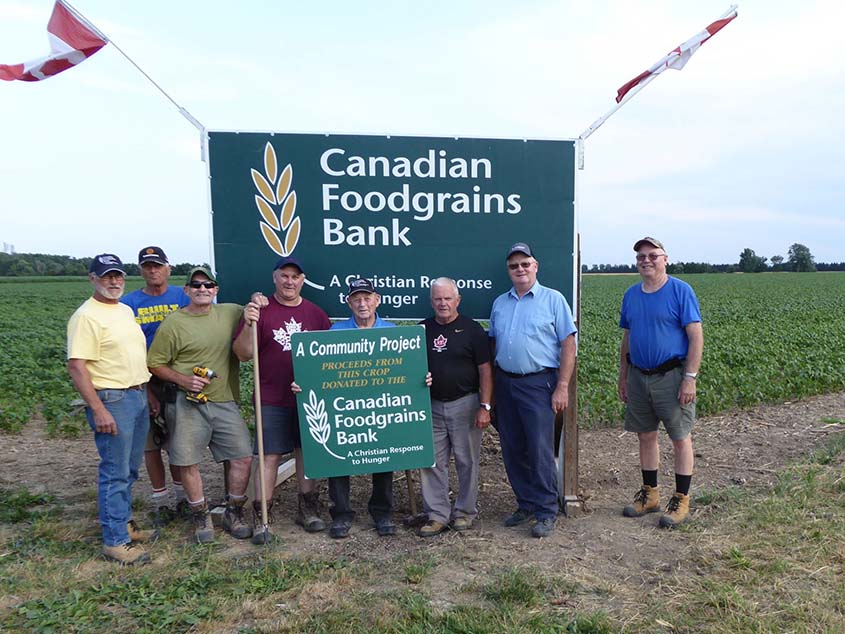
Larry Gray, Blyth Lannin, Bob Hutson, Larry Bertens, Ron Kraemer, Bob Harris, Tim Shute and Winston Jibb of the Thamesview/Main Street growing project. (Photo: Submitted)
For many who finally managed to get their crops in the ground, more trials lay ahead.
“In the summer, it rained and rained, so getting on the field was difficult,” says Hutson. “But despite the elements, we actually had a good harvest that produced 54 bushels per acre. We’re always happy if we get more than 50.”
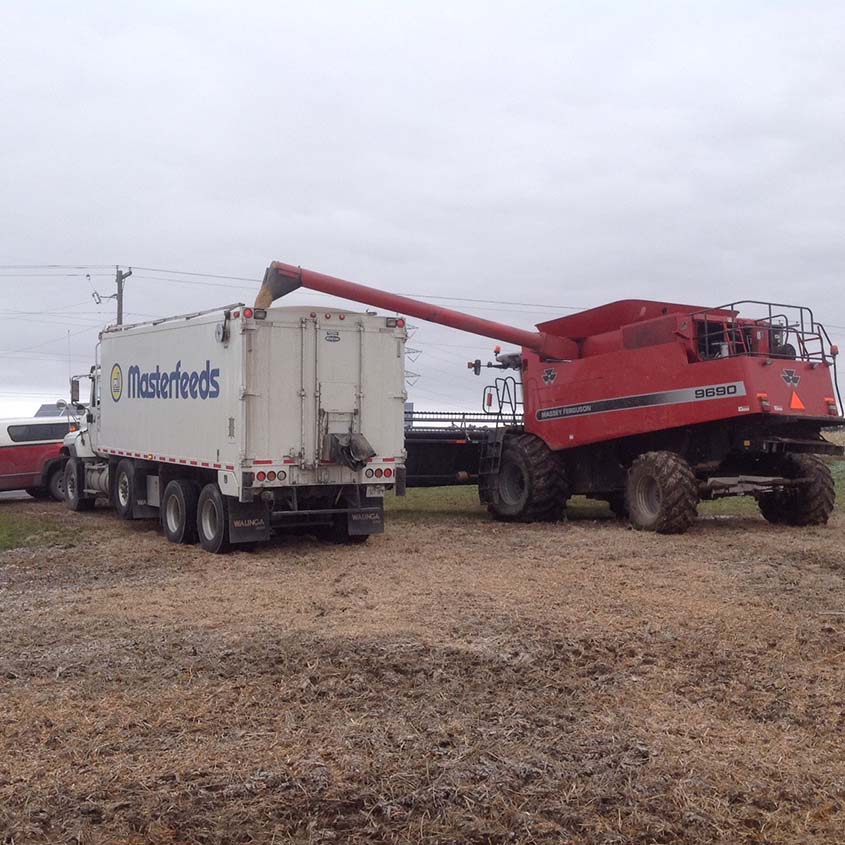
“It was a trying fall…Our 25-acre soybean field was lucky to get 45 bushels per acre off.” —Mackie Robertson, Char-Lan growing project in Lancaster, ON.
“For us, it was a reasonably good summer with good heat and lots of water,” says Mackie Robertson with the Char-Lan growing project in Lancaster. “But it was a trying fall. We had very early snow mid-November, which stayed on the ground. Our 25-acre soybean field was lucky to get 45 bushels per acre off.”
Quality of some crops decline
In Simcoe County, volunteers with the Loaves and Fishes growing project planted more than 200 acres of corn, wheat and soybeans on different fields throughout the area.
“Ontario definitely experienced a very wet, backwards spring,” says Kevin Eisses, chair of Loaves and Fishes. “So crops were seeded in marginal growing conditions. After that, it turned very dry. The wet led to a shallow root system, and the dry led to delayed development. In the Simcoe area, yields were only about 70 per cent of average.”
Eisses says the quality of wheat and soybeans was close to normal. But corn was another story.
Ontario definitely experienced a very wet, backwards spring.”
“It was behind maturity and then froze. Then we had the rail strike during a week when it was actually good weather for harvesting. It was more costly to get it off, and we got light bushel weight, poor grade corn, with kernel breakage.”
While the project did manage to get their corn off, some soybeans remained in the ground, leading to a crop insurance claim.
“We all see how God blesses our work, even when there are obstacles,” says Eisses. “True to our name Loaves and Fishes, all we have to do is give a little, and God multiplies our efforts to provide a harvest that can help those who are hungry in different parts of the world.”
Joining forces for a bigger impact
Just south of Simcoe County, another group of volunteers join forces through the York Region growing project. Eleven fields make up around 250 acres of soybeans and winter wheat.
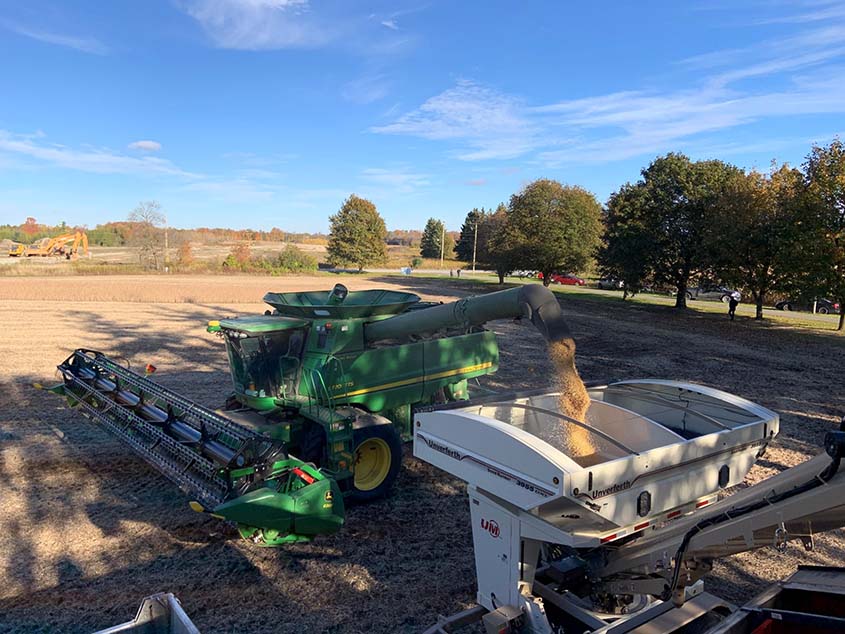
Danforth Grow Hope is one of 11 fields that make up the York Region growing project. (Photo: Submitted)
“We do all these things under one banner to create momentum and get the community involved and excited,” says Jeff Steiner who co-leads the project. “This year for the first time we teamed up with Rouge National Urban Park. They gave us 42 acres in Markham that we planted soybeans on. We got 47.5 bushels per acre, which we were ecstatic about given the tough season.”
Steiner says crops on growing project land did better than some of the farmers’ personal crops.
We’ve seen firsthand…how the money raised is really helping people facing crisis.”
“It’s in our DNA to be involved,” he says. “We may have our ups and downs with bad weather, but we live in a geographic area that is almost free of terrible natural disasters—so we are blessed to almost always grow some kind of crop. Overseas, that isn’t always the case. We’ve seen firsthand through Foodgrains Bank learning tours how the money raised is really helping people facing crisis.”
Resilience and a determination to help
Henry Reinders is the Foodgrains Bank’s new regional representative for Ontario and Quebec. A farmer himself, Reinders intimately understands the experiences of growing project volunteers.
“Farmers in Ontario certainly faced their fair share of challenges this year,” says Reinders. “Through it all, though, communities across the province found a way to volunteer their time and energy to help other people in need. Because of them, families facing hunger will have more to eat.”
– Jason Permanand, Writer
